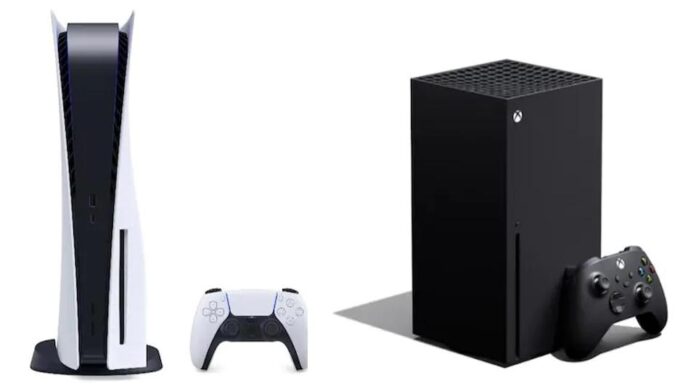Gamers, rejoice! The hotly anticipated next-generation consoles from Microsoft and Sony are now available, meaning you can enjoy kicking ass and taking names on your TV in luxurious 4K glory.
But if you’re on the fence about upgrading to the Xbox Series X/S or PlayStation 5 (or you just can’t find one in stock), you might want to stay there. The trio of new devices are indeed powerful, but plenty of factors—including a disappointing lack of next-gen games—means you may be better off waiting til next year, when the dust settles, deals may be on offer, and more games are ready for you to enjoy.
Here are four reasons to hold off on the big upgrade:
You can play some “next-gen” games already
You may think a new generation of consoles would bring a new stable of exclusive games taking advantage of all that newfound processing power. But some of the most anticipated next-gen launch titles, like Spider-Man: Miles Morales, Assassin’s Creed: Valhalla and Godfall are also available on previous-gen consoles or PC, meaning you don’t need to upgrade to play them unless you want the absolute best visual experience possible.
Some of the most anticipated truly exclusive titles for each console, like iconic Xbox Series X/S first-person shooter Halo Infinite and PlayStation 5 adventure game Horizon: Forbidden West, won’t be available until the second half of 2021, giving you more than enough time to delay spending your hard-earned cash.
You need a better TV
If you have a 1080p TV or 1440p monitor, you can enjoy improvements like an increase in frame rates (resulting in a smoother gaming experience) or graphical fidelity that make your games look better than they would on a less capable console. But you have to look really hard to noice the benefits—games like Assassin’s Creed: Valhalla look better on a console like the Xbox Series X, but not $400 better. And most games available for these new consoles were really made with the last-gen hardware in mind, so they’re not taking full advantage of the newfound processing power.
But if you have a 4K TV, you’ll enjoy the primary benefit of upgrading to a console like the PlayStation 5 or Xbox Series X right away. If that’s the case, you’ll definitely see sharper graphics compared to older consoles. Some games are even capable of running in 4K at up to 120 frames per second, but that’s not going to happen if your TV can’t match that refresh rate, or if it doesn’t support the proper connectivity standards. To experience true 4K gaming at 120 FPS, you’ll need a TV supporting the latest video standard: HDMI version 2.1.
The same goes for audio quality. Features like Dolby Atmos support only work if you have a supported sound system (the PlayStation 5 currently lacks Dolby Vision or Atmos support, and its 3D Audio tech works with headphones that support the proprietary format, like its own Pulse 3D gaming headset).
You’ll need more room for your games
Since next-gen games are so large in file size, you’ll need a place to put them. While you can still buy physical games on discs to stick in your console, both the $299 Xbox Series S and $399 PlayStation 5 “digital edition” eschew the disc drive, leaving users with only the option to download games to their 1TB drives. Titles like Call of Duty: Black Ops Cold War can use up nearly 20% of your console’s internal storage, if not more.
That means you’ll fill up those drives awfully quick—especially on the cheaper Xbox Series S, which only has a paltry 512GB of storage. You can buy a proprietary storage expansion card for the Xbox’s expansion slot, but an extra TB will run you over $200, making you wonder if dropping the extra $100 for a Series X in the first place will pay for itself in terms of storage.
Your Internet company might charge you extra
Some internet service providers have data caps that can be easily reached after downloading a few new games, especially considering that some PlayStation 5 and Xbox Series X games clock in at nearly 100GB a piece. You can get around this problem by buying versions of the new consoles with physical disc drives and sticking to buying games IRL, but it’s still worth thinking about.


